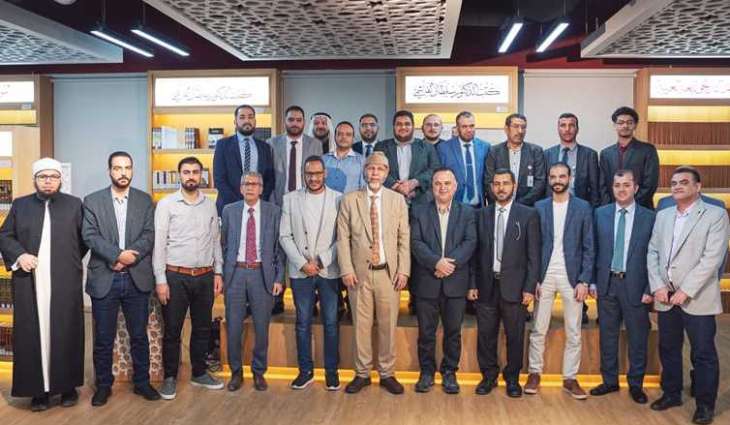SHARJAH, (Pakistan Point News - 06th Feb, 2025) Dr. Khalid Abu Amsha, professor of applied linguistics and expert in teaching Arabic to non-native speakers, highlighted that the greatest challenge in education is the innovative transfer of knowledge.
He stressed that an effective teacher should speak for no more than 20 percent of a lesson, allowing the rest of the time for student engagement.
He described teaching as an evolving journey shared with learners, requiring educators to continuously acquire new insights to remain effective.
Dr. Abu Amsha shared his views at the 10th Linguistic Council, held last Wednesday at the Arabic Language academy in Sharjah. The session focused on Characteristics and Traits of Arabic Teachers for Non-Native Speakers in Light of International and Emirati Standards.
He emphasised that teaching Arabic to non-native speakers demands educators with extensive knowledge and expertise across various fields.
Dr. Mohamed Safi Al Mosteghanemi, Secretary-General of the Arabic Language Academy in Sharjah, stated, “Non-native Arabic-speaking students are ambassadors of the Arabic language to the world," highlighting how they help expand its global reach, expressing its beauty and depth to diverse cultures.
He praised the commitment of His Highness Sheikh Dr. Sultan bin Muhammad Al Qasimi, Member of the Supreme Council and Ruler of Sharjah, to preserving and promoting Arabic. He noted Sharjah’s dedication to addressing the challenges of the language to secure its enduring legacy worldwide.
Dr. Al Mosteghanemi also spoke about Arabic’s rich history, shaped by renowned non-Arab scholars who advanced the humanities and sciences through the language. He underscored that recognising these contributions inspires modern efforts to enhance Arabic’s status using contemporary teaching methods.
Dr. Abu Amsha highlighted the UAE’s leadership in advancing Arabic through key initiatives, including the National Arabic Language Document, its updated version, Arabic Unites Us, and standards for teacher preparation, professional ethics, and continuous development.
He stressed the importance of integrating these frameworks into curricula to ensure lessons meet students’ needs and equip teachers with the tools to adapt to dynamic classrooms.
He warned that the least effective learning outcome occurs when students merely memorise a teacher’s structured approach, stripping lessons of motivation and engagement. Instead, he advocated for a task-based teaching model that links language learning to real-life experiences, helping students acquire practical vocabulary and structures.
In closing, Dr. Abu Amsha stated, "It is essential to develop innovative and unconventional titles for Arabic language books, such as Arab Cities, to present grammatical rules through engaging storytelling that captivates learners, making the learning experience both enjoyable and stimulating."




